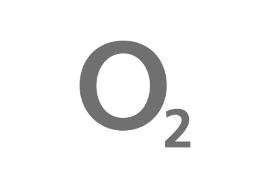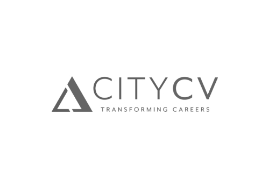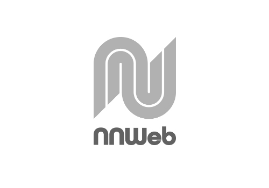Content marketing is a crucial driver for SEO success. It creates valuable opportunities to engage your audience, demonstrate expertise, and improve organic rankings. Here’s how you can leverage content marketing to enhance your SEO efforts and boost visibility.

Types of Content that Boost SEO
Different content types offer unique advantages when it comes to SEO. To make the most of content marketing, it’s important to use a variety of content formats tailored to your audience’s needs:
Blog Posts
Blogs are the cornerstone of SEO content marketing. Regularly publishing keyword-targeted posts not only improves SEO rankings but also provides users with informative, valuable content that encourages engagement. By optimising each post with a mix of short-tail and long-tail keywords, businesses can rank for a variety of search queries. In addition, blog posts that answer user questions (like how-to guides or product comparisons) encourage backlinks and social shares, which further boost SEO.
Infographics
Infographics are not only visually appealing but are great for improving engagement and encouraging backlinks. When properly optimised, they can improve time on site and social media shares. Infographics simplify complex data, making them shareable and more likely to be cited, helping your domain authority grow. Ensure your infographics include alt text and proper descriptions for SEO optimisation.
Videos
Video content is increasingly favoured by both users and search engines. Videos drive user engagement, increase time on site, and reduce bounce rates—key metrics search engines like Google consider when ranking pages. Optimising videos with keywords in titles, descriptions, and tags can make a significant difference in discoverability. Platforms like YouTube also act as search engines themselves, so a solid video content strategy can lead to higher visibility across multiple channels.
Case Studies and Whitepapers
Long-form content like case studies and whitepapers positions your business as an industry leader. These in-depth pieces of content help generate leads, as visitors often trade contact information to access high-value resources. Optimising case studies with specific keywords (like “best practices,” “results,” or “solutions”) not only helps your audience find them but also strengthens your website’s SEO authority over time.
How Content Improves SEO Rankings
Content marketing goes beyond just creating content—it’s about how that content is structured, optimised, and leveraged across your digital channels. Here’s how quality content can improve SEO rankings:
Keywords
While writing content, incorporating a variety of relevant keywords is essential for SEO. But it’s not just about density; context matters. Keywords should be naturally integrated into headers, subheadings, and body text, ensuring the content reads well and is optimised for both search engines and users. Using a mix of primary and secondary keywords helps cover a broader range of search queries, ultimately boosting rankings.
Internal Linking
Linking to other pages or blog posts within your website is critical for SEO. Internal links not only guide users to additional relevant content but also help search engines crawl your website more effectively. By creating a logical linking structure, you’re ensuring that your content is discoverable, which leads to higher rankings for both older and newer pages.
User Engagement
Search engines assess how users interact with your content. Factors like how long they stay on your page, whether they engage with multimedia, or if they share your content on social media all contribute to SEO. Engaging content that keeps users on your site longer and encourages interaction (like commenting or sharing) signals to search engines that your page is valuable, boosting your SEO rankings.
Regular Updates
Fresh, updated content is essential for SEO. Search engines like Google prioritise content that’s current and relevant. Regularly refreshing your website with updated blog posts, industry news, or product information ensures your site remains relevant and responsive to both your audience’s and search engines’ needs. This proactive approach prevents your site from becoming stagnant, which could negatively impact rankings over time.
Content Length and Depth
Longer content tends to rank better in search engines, especially when it thoroughly answers the user’s query. Search engines favour content that provides comprehensive answers to search intent, covering the topic from multiple angles. By writing in-depth blog posts or guides, you increase your chances of ranking for more competitive keywords and providing greater value to users.
Broader Strategies for Content Marketing & SEO
To truly leverage content marketing for SEO, businesses must take a holistic approach. This means developing a comprehensive strategy that aligns content goals with SEO objectives. Here’s how to expand your content strategy for SEO success:
Content Strategy and Planning
Start with a clear plan that defines your target audience and SEO objectives. Conduct keyword research to identify what your audience is searching for, and build your content calendar around high-value topics that align with both your business and your SEO goals. This will ensure you’re producing content that matters and can help you rank for competitive terms.
Link Building
High-quality backlinks from reputable websites are one of the strongest ranking factors for SEO. Content marketing provides numerous opportunities for link-building, especially when you create content that others find valuable enough to reference. By earning backlinks to your blog posts, case studies, or whitepapers, you improve your website’s credibility, which directly impacts your SEO performance.
Content Distribution
Creating great content is only half the battle. To boost SEO, you need to ensure that content is being shared and seen by the right audience. Share content across social media platforms, email newsletters, and other digital channels to drive traffic to your site. Promoting your content through external channels also helps generate backlinks, which improves domain authority and ultimately SEO rankings.
User-Generated Content (UGC)
Encouraging your audience to contribute content (such as reviews, testimonials, or social media posts) can provide both SEO benefits and social proof. UGC often contains long-tail keywords naturally used by your audience, which helps attract highly targeted traffic. Additionally, search engines view UGC as authentic and relevant, which can further boost rankings.
How CreativeFolks Can Help
At CreativeFolks, we understand the critical relationship between content marketing and SEO. We specialise in developing content strategies that align with your SEO goals, creating valuable, optimised content that not only attracts visitors but also keeps them engaged. From blog posts and videos to case studies and infographics, we can help you craft a diverse content mix that drives organic traffic and increases your rankings.
Ready to supercharge your SEO? Contact us at CreativeFolks today to find out how our content marketing & SEO services can improve your search rankings and business performance.













